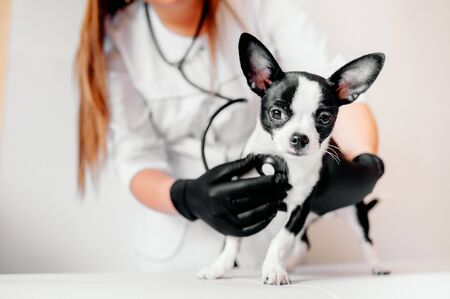Introduction to Pet Travel in the UK
Travelling with pets to and within the United Kingdom has become increasingly popular among pet owners who wish to include their furry companions in family holidays, relocations, or even short visits. However, the process requires careful planning and a clear understanding of the UK’s pet travel regulations to ensure a smooth journey for both you and your pet. The UK enforces strict rules designed to prevent the spread of diseases such as rabies and to safeguard animal welfare. As such, complying with vaccination requirements and obtaining the correct documentation—such as a valid pet passport—is essential. Planning ahead is vital, not only for meeting legal requirements but also for prioritising your pet’s health and comfort during transit. By familiarising yourself with these regulations and preparing in advance, you can help make your pet’s journey safe, stress-free, and enjoyable for everyone involved.
2. Understanding Pet Passports
A pet passport is an official document that records information about your pet, including their identification details, vaccination history, and relevant health checks required for travel. Designed to make travelling with pets smoother across international borders, pet passports play a crucial role in ensuring both animal welfare and public safety by preventing the spread of diseases such as rabies.
Before Brexit, the UK was part of the European Union Pet Travel Scheme (PETS), which allowed pets to move freely between member countries with a standard EU pet passport. However, after Brexit, significant changes came into effect for both UK-based and overseas pet owners wishing to travel to or from the UK with their animals.
What Does a Pet Passport Include?
| Information | Description |
|---|---|
| Microchip Details | Unique identification number and date of implantation |
| Rabies Vaccination Record | Date of vaccination, batch number, and validity period |
| Tapeworm Treatment (for dogs) | Treatment date, time, and veterinary signature (if required for destination) |
| Owner Details | Name, address, and contact information |
| Veterinarian Details | Official stamp and signature of authorised vet |
Post-Brexit Changes for Pet Owners
For pet owners residing in Great Britain (England, Scotland, Wales), EU-issued pet passports are no longer valid for travel from GB to the EU or Northern Ireland. Instead, you must now obtain an Animal Health Certificate (AHC) from an Official Veterinarian for each journey to the EU or NI. Conversely, if you are travelling from the EU or Northern Ireland to Great Britain, a valid EU or NI pet passport is still accepted at British borders.
Summary of Key Differences Pre- and Post-Brexit:
| Travel Direction | Pre-Brexit Document | Post-Brexit Document Required |
|---|---|---|
| GB to EU/NI | EU Pet Passport | Animal Health Certificate (AHC) |
| EU/NI to GB | EU/NI Pet Passport | EU/NI Pet Passport (still valid) |
This shift means it is essential for UK-based pet owners planning international travel to familiarise themselves with new requirements well in advance. Keeping up-to-date with government guidelines ensures your pet’s journey is safe, legal, and stress-free.

3. Key Vaccination Requirements
If you are planning to travel to or within the UK with your pet, understanding the essential vaccination requirements is crucial for a smooth and stress-free journey. The UK has strict regulations designed to protect public health and animal welfare, which means certain vaccinations and treatments are mandatory before entry is permitted.
Rabies Vaccination
The most critical vaccination for pets entering the UK is against rabies. All dogs, cats, and ferrets must be vaccinated by a licensed veterinarian at least 21 days before travel. The rabies vaccine must be administered after your pet is microchipped, and you must keep records of the vaccine batch number, date, and validity period in your pet’s passport. If your pet’s rabies vaccination lapses, you will need to restart the 21-day waiting period following a booster.
Tapeworm Treatment for Dogs
For those travelling with dogs, an additional requirement is tapeworm treatment. This must be given by a vet between 24 and 120 hours (1 to 5 days) before entering Great Britain. The treatment must contain praziquantel or an equivalent proven to be effective against Echinococcus multilocularis. Details of the treatment—including date, time, and veterinary stamp—must be recorded in your pet passport or official veterinary certificate.
Additional Health Checks
Beyond rabies and tapeworm treatments, it’s important to ensure your pet is generally healthy for travel. While not always mandatory, a recent health check by a vet is recommended to confirm your animal is fit for the journey. Some carriers or destinations within the UK may request proof of up-to-date core vaccinations such as distemper, parvovirus, or leptospirosis for dogs, or feline influenza for cats. Always check current government guidance or consult with your vet prior to travel.
Summary of Requirements
To summarise, all pets must have an up-to-date rabies vaccination, microchip identification, and—for dogs—a certified tapeworm treatment before entering the UK. Keeping accurate records in your pet passport ensures compliance with British regulations and helps avoid any stressful complications during your travels.
4. Approved Routes and Carriers
When travelling with pets to and within the UK, it is essential to use only approved routes and transport companies to comply with British regulations and safeguard animal welfare. The UK government has strict guidelines on which ports, airports, and carriers are authorised for pet entry, ensuring that all animals are checked appropriately for health documentation and vaccinations upon arrival.
Approved Points of Entry
Pets entering the UK must do so through designated points of entry. Not all airports or ferry ports accept pets under the Pet Travel Scheme (PETS), so careful planning is necessary. Below is a table listing some common approved points of entry:
| Type | Location | Notes |
|---|---|---|
| Airport | London Heathrow (LHR) | Main hub for international arrivals |
| Airport | Manchester Airport (MAN) | Accepts PETS-compliant pets |
| Ferry Port | Dover | Popular for crossings from Europe |
| Eurotunnel | Folkestone | Direct car travel from France to UK |
Authorised Carriers and Transport Companies
Only certain airlines, ferry operators, and rail services have permission to transport pets into the UK. Before booking your journey, confirm with the carrier that they are licensed for pet travel under PETS. Most major airlines flying into approved airports offer a pet travel service, but always double-check their policies on crate sizes, documentation requirements, and pre-travel health checks.
Key Considerations When Choosing a Route or Carrier:
- Book in advance: Spaces for pets may be limited and subject to availability.
- Direct routes preferred: Minimises stress and reduces risk of non-compliance during layovers.
- Status confirmation: Regularly check the UK government’s official list of approved routes and carriers, as status may change due to policy updates or Brexit-related changes.
- Anxiety reduction: Choose carriers experienced in pet handling to promote comfort and safety.
If Travelling Within the UK
If you are moving your pet between England, Scotland, Wales, or Northern Ireland after entry into the UK, there are generally fewer restrictions provided your animal has already cleared initial border controls and holds a valid pet passport or health certificate. However, always check local transport company rules regarding pets on public transport such as trains or coaches, as policies can vary.
5. Veterinary Health Checks and Certificates
Before embarking on your journey to or within the UK with your pet, it is essential to ensure that all veterinary health checks and certificates are in order. The UK has strict requirements designed to protect animal and public health, so preparation is key. A comprehensive veterinary examination must be conducted by a licensed vet, usually no more than 10 days before travel. This check will assess your pet’s general health and verify that all vaccinations, such as rabies, are up-to-date and properly documented in the pet passport or third-country official veterinary certificate.
For dogs, cats, and ferrets entering the UK, an EU Pet Passport or an Animal Health Certificate (AHC) is necessary if travelling from outside the EU or from a non-listed country. The AHC must be issued by an official veterinarian and include details of microchip identification, vaccination history, and clinical examination results. Additionally, treatments for tapeworms are mandatory for dogs travelling directly to Great Britain, which must be administered between 24 hours and 120 hours (1–5 days) before entry.
It’s important to keep copies of all documentation, including vaccination records and health certificates, as these may need to be presented at border control. Missing or incomplete paperwork can result in your pet being denied entry or placed into quarantine at your expense. To avoid last-minute stress, consult your vet well in advance of your planned departure date—ideally at least one month ahead—to confirm you meet all requirements within the correct timeframes.
Timely veterinary checks not only help you comply with UK regulations but also safeguard the wellbeing of your pet during travel. By following these procedures diligently, you can look forward to a smooth entry into the UK and a safe journey for your four-legged companion.
6. Looking After Your Pet’s Wellbeing During Travel
Ensuring your pet’s wellbeing during travel to and within the UK is just as important as meeting passport and vaccination requirements. A healthy, stress-free journey helps prevent illness and supports compliance with UK animal welfare standards.
Preparation Before Departure
Start by scheduling a thorough health check with your vet, who can confirm that vaccinations are up-to-date and issue any necessary certificates. Acclimatise your pet to their travel carrier well in advance, making it a comfortable and familiar space by adding their favourite blanket or toy. Check airline or ferry regulations for pet travel to ensure you have suitable equipment and meet all guidelines.
Packing Essentials
Pack enough food and water for the journey, along with any required medication. Include a copy of your pet’s passport, vaccination records, microchip details, lead, collar with an ID tag, waste bags, and a portable water bowl. It’s wise to bring comfort items like treats or toys to help reduce anxiety.
During the Journey
Keep your pet secure in their carrier or with a harness if travelling by car. Never leave pets unattended in vehicles, especially during warm weather. Make regular stops for exercise and toilet breaks if driving. Offer small amounts of water frequently but avoid overfeeding before travel to minimise motion sickness.
Tips for Comfort and Safety
- Maintain a calm environment—speak softly and reassure your pet.
- Monitor temperature and ventilation; avoid direct sunlight on carriers.
- Use pheromone sprays or calming aids approved by your vet if your pet is prone to anxiety.
Post-Travel Care
Once you’ve arrived, allow your pet time to acclimatise to the new environment. Observe them closely for signs of stress or illness such as vomiting, diarrhoea, or lethargy. Resume their normal routine gradually—offer familiar food and establish regular walks or playtime. If your pet shows any unusual symptoms, consult a local vet promptly.
Remember, looking after your pet’s health during travel not only ensures their safety but also supports adherence to UK regulations. With thoughtful preparation and attentive care throughout the journey, you can help make travelling together a positive experience for both you and your furry companion.
7. Useful Resources and Contact Points
Navigating pet passport and vaccination requirements can be complex, especially with frequent updates to regulations. To ensure your travel plans go smoothly and your pet remains healthy and compliant, it is crucial to consult reliable sources for the most up-to-date information. Below is a list of trusted resources tailored for those travelling to and within the UK with pets.
Official Government Websites
- UK Government – Bringing Your Pet to Great Britain: gov.uk/bring-pet-to-great-britain. This site provides the latest rules on pet travel, required documents, and approved routes.
- Department for Environment, Food & Rural Affairs (DEFRA): gov.uk/defra. DEFRA oversees animal importation regulations and offers guidance on vaccinations and quarantine procedures.
Veterinary Contacts
- Your Local Vet: Always consult your veterinarian well before travel to confirm vaccination schedules and documentation. They can issue Animal Health Certificates (AHCs) if required.
- British Veterinary Association (BVA): bva.co.uk. The BVA website has directories to help you find qualified vets across the UK.
Pet Travel Helplines
- PET Travel Scheme Helpline: 0370 241 1710 (UK) – For direct advice regarding entry requirements, documents, or any recent regulatory changes affecting pet travel.
Travel Operators and Ferry Companies
- Check with specific airlines, Eurotunnel, or ferry operators about their individual pet travel policies, as these may vary. Most operator websites have dedicated pet travel sections with FAQs and contact details for further support.
Health and Preventive Care Information
- The PDSA and Blue Cross charities offer practical advice on maintaining your pet’s health during travel, including preventive care tips for stress reduction and infection control.
By consulting these trustworthy resources before you travel, you can ensure that you meet all legal requirements and safeguard your pet’s wellbeing throughout your journey in the UK.

